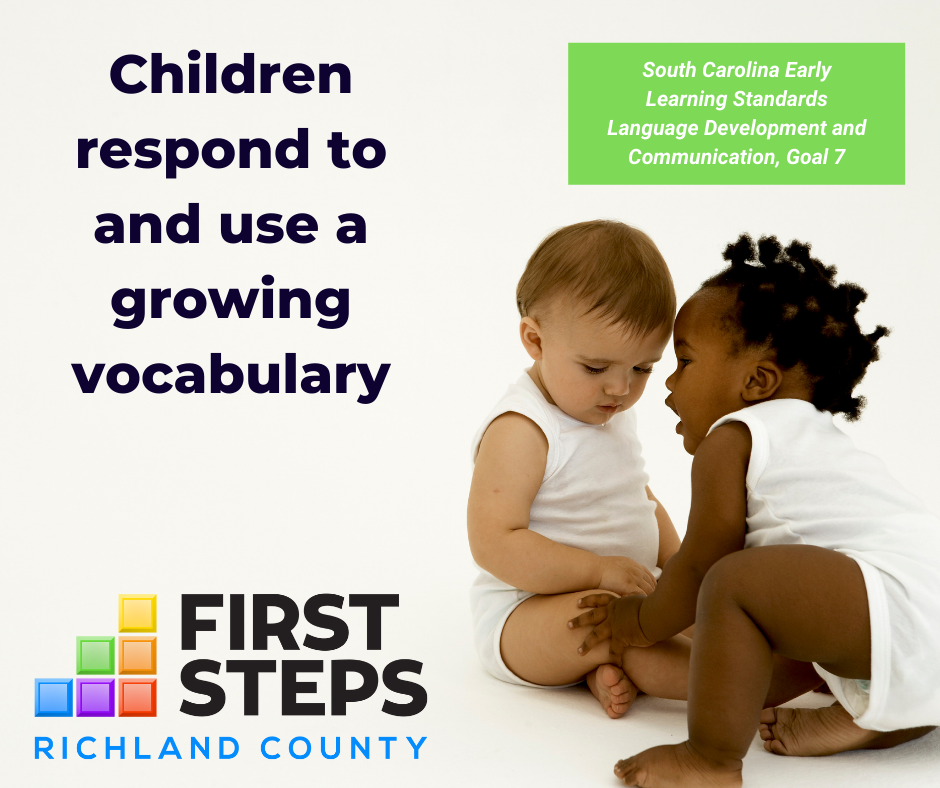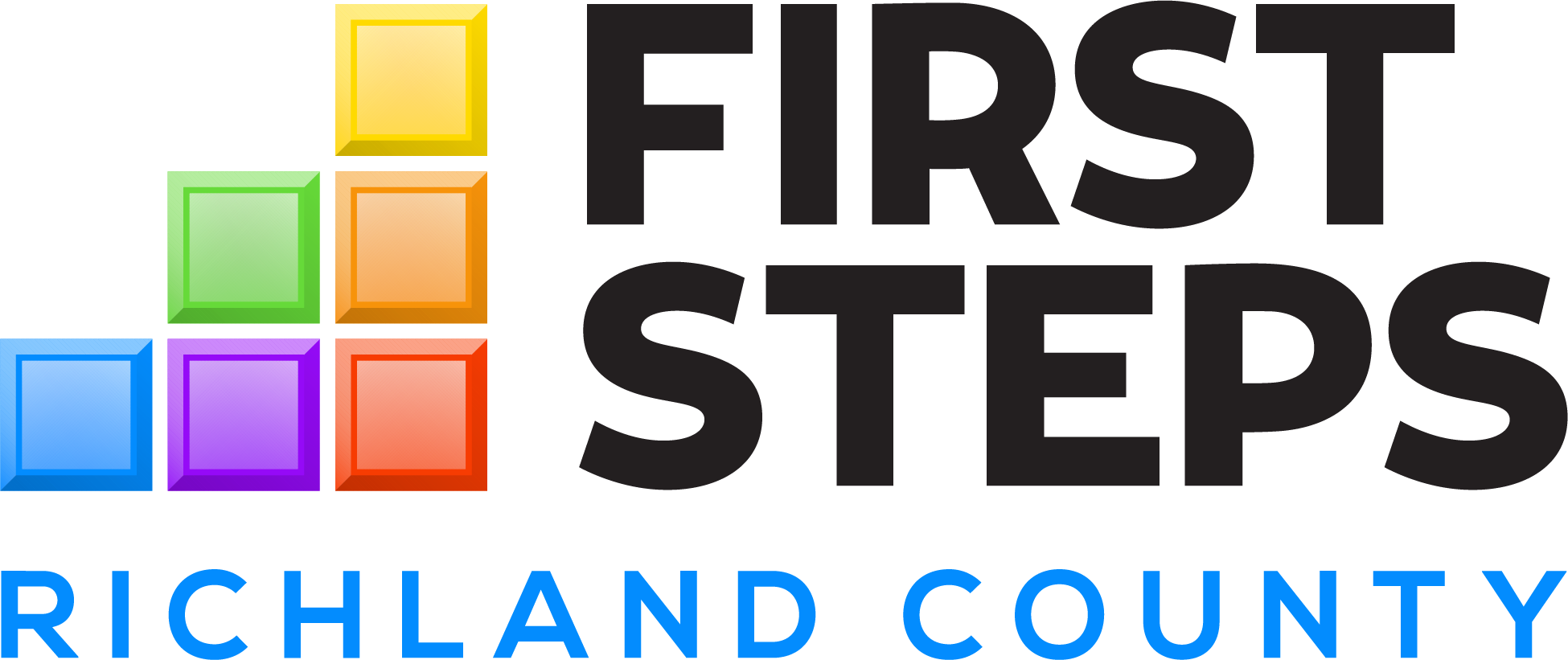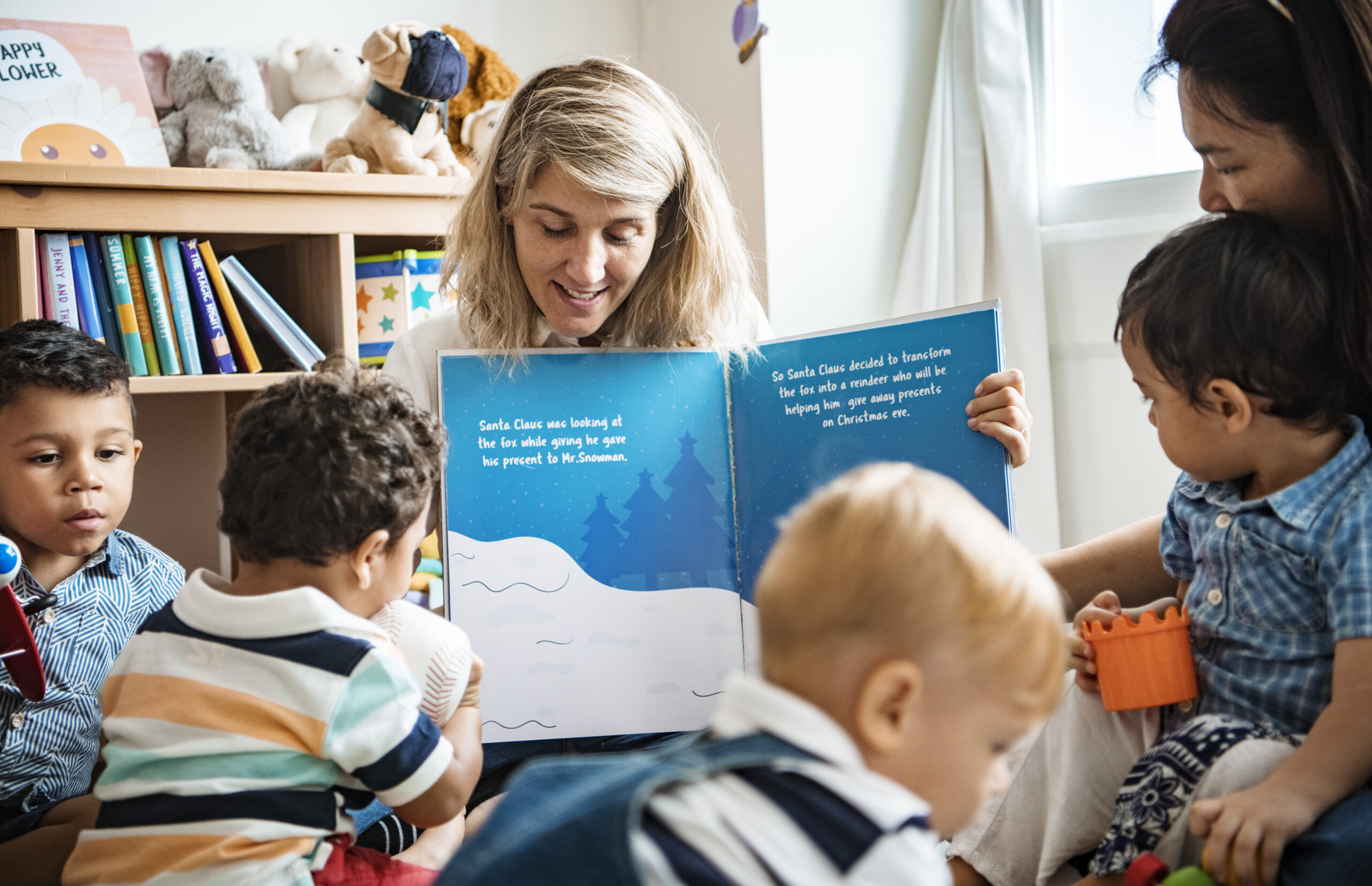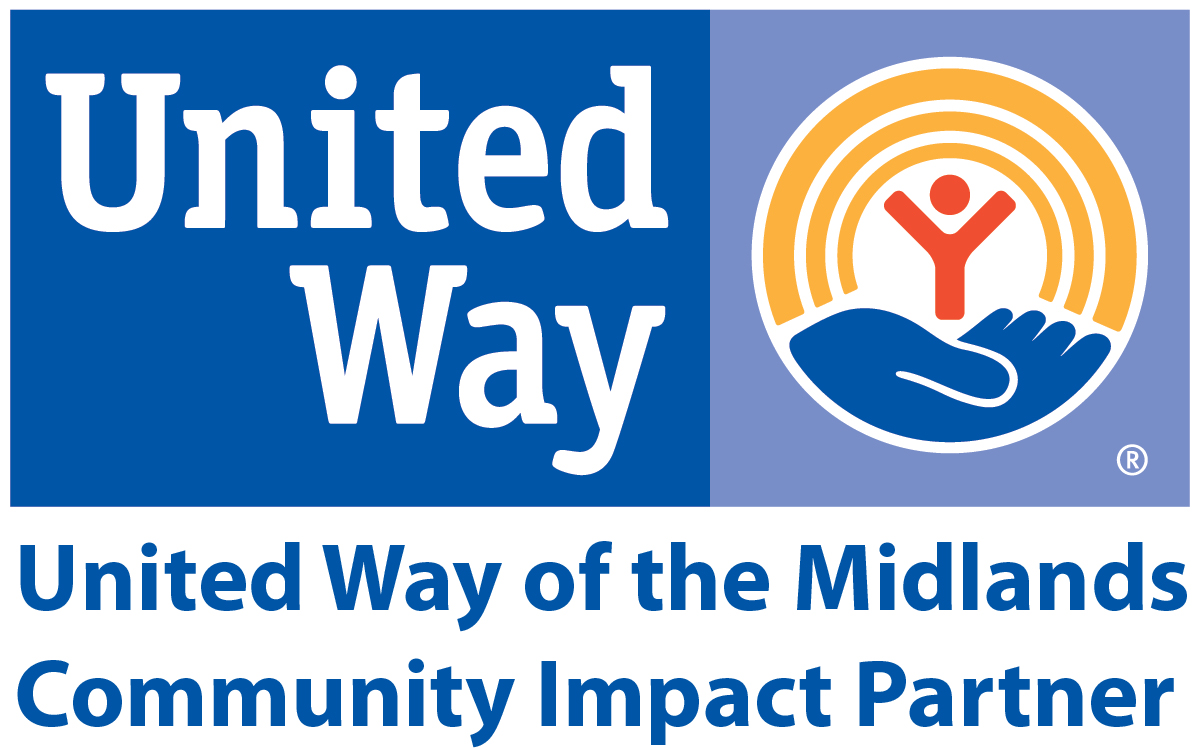
Each month, Richland First Steps selects one school readiness goal from the SC Early Learning Standards (SCELS) to spotlight throughout our programs for children, families, and child care providers.
This month’s concept comes from the Language Development and Communication domain of the SCELS. Like all of the standards, there are developmental indicators that show a child’s progress on this goal at each stage:
Infants (Birth to 12 months)
- Make specific sounds, facial expressions, and/or gestures for certain people and objects.
- Imitate sounds, words, and gestures.
- Recognize spoken or signed words for common items
Younger Toddlers (8 to 21 months)
- Show steady increase in words used (e.g., name family members and familiar objects).
- Imitate parts of familiar songs, chants, or rhymes.
- Respond to simple words and phrases that they hear often.
- Use several words to make requests (e.g., “done,” “wannit,” “please”) as well as to label people and objects.
Older Toddlers (18 to 36 months)
- Use new words each day and have a word for almost all familiar people, objects, actions, and conditions (hot, rainy, sleepy).
- Participate in or repeat familiar songs, chants, or rhymes.
- Show they understand many new vocabulary words and a variety of concepts (big and little, in and
- out).
- Use proper nouns for people and things.
Younger Preschoolers (36 to 48 months)
- Repeat familiar songs, chants, or rhymes.
- Use more than one word for the same object and use words for parts of objects (e.g., dog, beagle, Rover; arm, leg).
- Make up names for things using words they know (e.g., dog doctor for veterinarian).
- Use many kinds of cues in the environment to figure out what words mean.
Older Preschoolers (48 to 60+ months)
- Repeat familiar songs, chants, or rhymes.
- Use a growing vocabulary that includes many kinds of words to express ideas clearly.
- Infer the meaning of different kinds of new words from the context in which they are used (for example, hear “sandals” and “boots” used to describe two pairs of shoes, and infer that the unfamiliar shoes must be sandals because they know that the other pair of shoes are boots).
- Distinguish between real and made up words.


